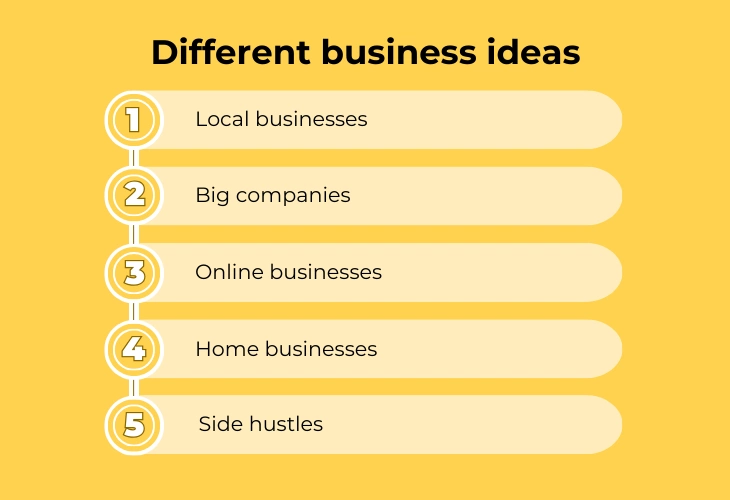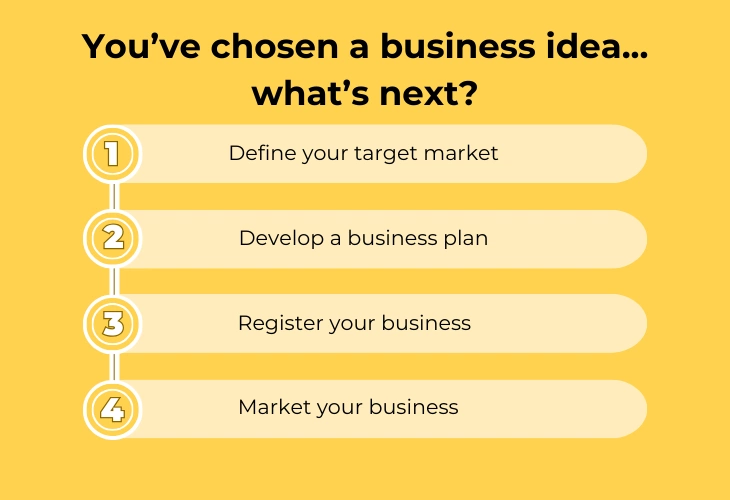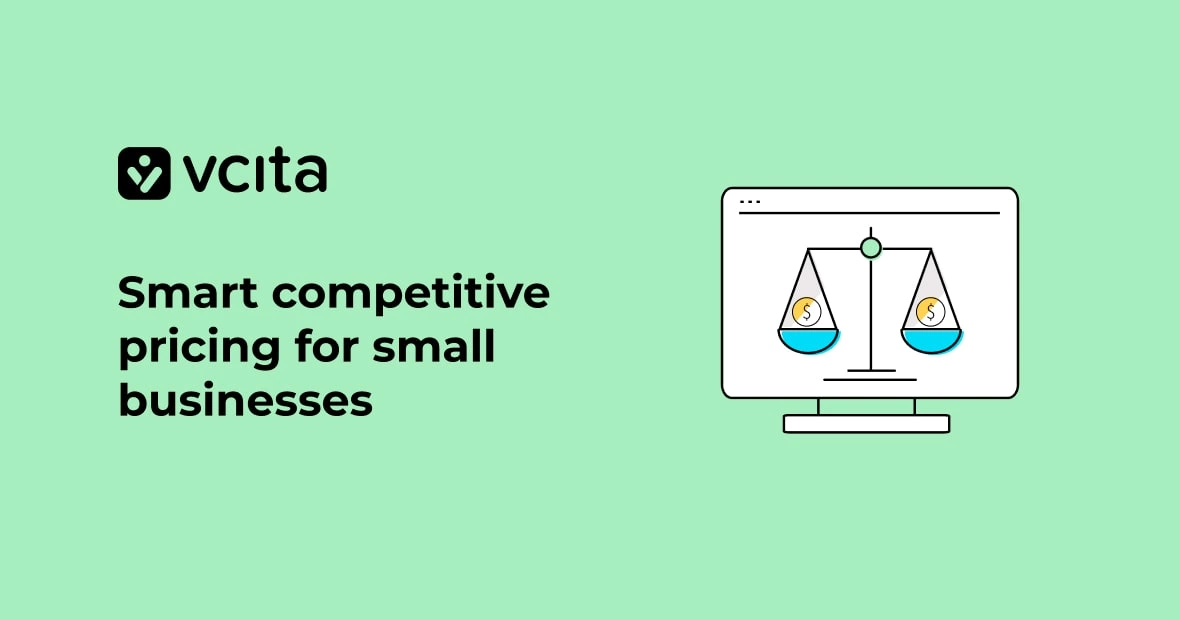You’re reading this blog post because you want to start a business but have no ideas. This is a common challenge. Many aspiring small business owners and entrepreneurs struggle to come up with that first great business idea. But don’t worry, with some research into your target market and potential marketing strategies, you can find the right business idea for you.
This post will cover how to spark your creativity and then turn that spark into the flame of a successful business. By the end, you’ll have several promising small business ideas to choose from and feel confident about your next steps.
Out of business ideas? You’re not alone
Coming up with a viable business idea is challenging and can take time. Here is a brief overview of various ways to generate small business ideas:
- Research current trends and problems to solve.
- Turn your passion into a business like a blog, YouTube channel, or online course.
- Evaluate your skills and experience for knowledge that would be valuable to others.
- Look at thriving online businesses and niches that you could copy or improve on.
The key is finding something that fits your goals, skills, and target market.
Look within for business possibilities
The most successful businesses are born from doing something the owner enjoys and is good at. When you build on your existing skills, interests, and passions, work doesn’t feel like work. You’ll have the motivation and knowledge to create something great.
Whatever your skills and interests, there are ways to turn them into a business, like offering your services as a freelancer or consultant, selling related products, or providing in-person experiences and events.
What are your hobbies, skills, and talents? Think about the topics you enjoy reading and learning about in your spare time. Maybe it’s something creative like photography, cooking or graphic design. Or perhaps it’s more technical like programming, building websites or fixing cars.
Look at your work experience and education too. Do you have expertise that would be valuable to others? If so, you may be able to leverage it by starting a consulting business. Many successful entrepreneurs built companies in fields they had experience in.
You can also talk to friends and family to get their input. They know you best, and they might recognize strengths, talents, or passions that you haven’t considered as potential business opportunities.
Research different business ideas

As an aspiring entrepreneur without a solid plan, researching different business models and online opportunities is key. Look for gaps in the market that you could potentially fill with your own business venture.
Local businesses
Start by looking at successful businesses in your area. Study their business model, target market, and marketing strategy to see what types of products or services they are offering, who is their target customer, and how they are promoting their business.
Big companies
You can also study the business plans and models of big companies for ideas and inspiration. Even though you’re just starting out, you can learn a lot from successful businesses. Look at how they identified a target market, developed products and services, built their brand, and grew into a thriving company.
Online businesses
Explore different online business ideas like affiliate marketing, online courses, ebooks, membership sites, dropshipping, and freelancing. The internet has made it easy to start an online business, and many successful entrepreneurs have built empires from their laptop. An online business may be an easy way to start without a physical location or inventory.
Home businesses
Consider home business ideas that allow you to leverage skills and interests you already have. Things like blog writing, graphic design, online tutoring, and consulting are all options for starting a home business.
Side hustles
Research the types of small businesses that work well as a side hustle or part-time job. Maybe there’s a small business idea like dog walking, lawn mowing, or house cleaning that interests you. These ventures typically require little start-up capital but can generate decent cash on the side.
When you find an existing business that inspires you, start exploring it more deeply. Look for ways to improve on their business model, and search for problems or unmet needs in their target market you can solve with your business.
With an open and curious mind, you’ll discover many possibilities for your small business idea. Keep researching and find options that match your skills, interests, and risk tolerance.
Investigate problems to solve or needs to fulfill
Successful entrepreneurs find ways to solve real problems or fulfill in-demand needs. They identify gaps that they can fill with a new product or service. Think about common frustrations or issues people in your target market face:
- What goods or services do they regularly need?
- What solutions or resources are missing?
- What could make their lives easier or more efficient?
Ask people in your target market directly about their biggest problems or needs, and look for discussions in online forums, blogs, or social media. The issues people frequently complain about are opportunities for new businesses. Some examples of problems or needs new businesses have solved include:
- Lack of selection or availability of niche products (solved by online businesses)
- Desire for custom or curated products (solved by made-to-order and subscription companies)
- Demand for eco-friendly or all-natural alternatives (solved by green and wellness brands)
- Need for affordable tools or education (solved by online courses and SaaS companies)
Once you identify some potential problems or needs, evaluate which ones match your skills, interests, and experience. Think about what resources you have access to and what business model might work well for a solution, then narrow down your options to a few of the most promising choices.
Finding good problems or needs to solve is a key step for starting a small business. They represent opportunities to build something people genuinely want and will pay for. With the right solution, you can turn those needs into a successful business venture.
Now you’ve picked a business idea, what do you do next?

Coming up with a great business idea is a major achievement, but there’s still more work to be done. Here are your next steps to setting up your new business.
Define your target market
Once you have a business idea or two that you’re passionate about, it’s time to define your target market and create a marketing strategy. Ask yourself, who will buy my product or service? Be as specific as possible in identifying the types of customers most likely to purchase what you’re selling. Consider factors like age, location, income level, lifestyle, problems or needs, etc.
The more precisely you can define your target market, the easier it will be to reach them. Do some research online or through social media to learn more about their key interests and where they spend their time. This will help determine the best ways to market to them.
Develop a business plan
A business plan is essential for any new business venture. It will help you outline your business idea, your target market, and your strategy for building a successful company. Here are some of the elements to include in your business plan:
- Identify your target market. Who will buy your product or service? Define your ideal customers in terms of age, location, income, interests, etc.
- Choose a business model. Will you have a physical store, sell products online, offer a service, or work as a consultant? Determine how you will make money.
- Define your product or service. What exactly will you sell or offer to your target market? Make sure it’s something people will actually pay for.
- Outline a marketing strategy. How will you promote your business and acquire new customers? Consider social media marketing, email marketing, partnerships, word-of-mouth, etc.
- Give an overview of business operations. Estimate costs, outline operational details, growth plans, risks, financial projections, and key milestones.
- Define your business mission and vision. What do you hope to achieve in 1, 5 and 10 years? Set specific and measurable goals to work toward.
With some time and effort, you can develop a comprehensive business plan to launch your new venture.
Register and set up your small business
As a new entrepreneur, one of the first things you’ll want to do is choose a business structure, like sole proprietorship, partnership or corporation. The structure you choose will determine things like liability, taxation, and paperwork requirements. Many small business owners opt for sole proprietorship to start since it’s the simplest.
You’ll need to register your business with your state, obtain business licenses or permits, and file for an Employer Identification Number or EIN from the IRS, if you plan to hire employees.
Develop your brand, including a company name, logo and tagline. Use your logo and brand colors consistently to ensure brand recognition.
You’ll also need to set up the essential systems and tools you’ll need for daily operations, like accounting software, email marketing platforms, customer relationship management or CRM software, and project management systems.
Promote your new business with a marketing strategy
Once you have your small business idea or online business selected and are ready to launch, it’s time to start spreading the word. Here are some important elements of a successful marketing strategy:
- Build an eye-catching website and start a blog to establish your online presence. Regular blog posts discussing topics of interest to your target market can increase traffic and visibility.
- Leverage social media platforms like Facebook, Instagram and Twitter. Create business profiles and post engaging content, special offers, behind-the-scenes photos, and more. Engage with your followers by replying to their comments and messages.
- Run a social media ad campaign to reach more potential customers. Many successful online businesses rely heavily on Facebook and Instagram ads. They’re affordable, highly targeted, and can generate lots of interest.
- Start an email newsletter to stay in touch with your customers. Send updates, special offers, tips, newsletters, and the latest blog posts. But don’t spam them! Email only when you have something valuable to share.
- Get creative with your marketing. Sponsor local events, give talks, start a podcast or YouTube channel, offer free samples or trials, distribute flyers, take out ads in industry publications—the options are endless.
Use social media to increase brand awareness
Social media platforms like Facebook, Instagram, and Twitter offer small business owners direct access to potential customers and the ability to build brand awareness. The key to leveraging these platforms is developing a smart marketing strategy.
A common mistake new business owners make is trying to be on every social media platform. It’s best to focus on the 2 or 3 networks that reach your target customers. Do research to determine where your competitors and industry leaders are most active and which networks drive the most engagement and website traffic.
It’s a good idea to implement the 80/20 rule: share 80% content that provides value to your audience, and 20% promotional content about your product or service. Just remember that social media marketing takes time, consistency and authenticity.
Your new small business is just around the corner
So if you want to start a business but have no ideas, don’t worry! There are plenty of ways to find the perfect small business idea and develop a unique product or service offering. Once you find an idea you’re passionate about, do thorough research, create a business plan, and start building your audience. With hard work and persistence, you can turn your small business idea into a successful venture.




























